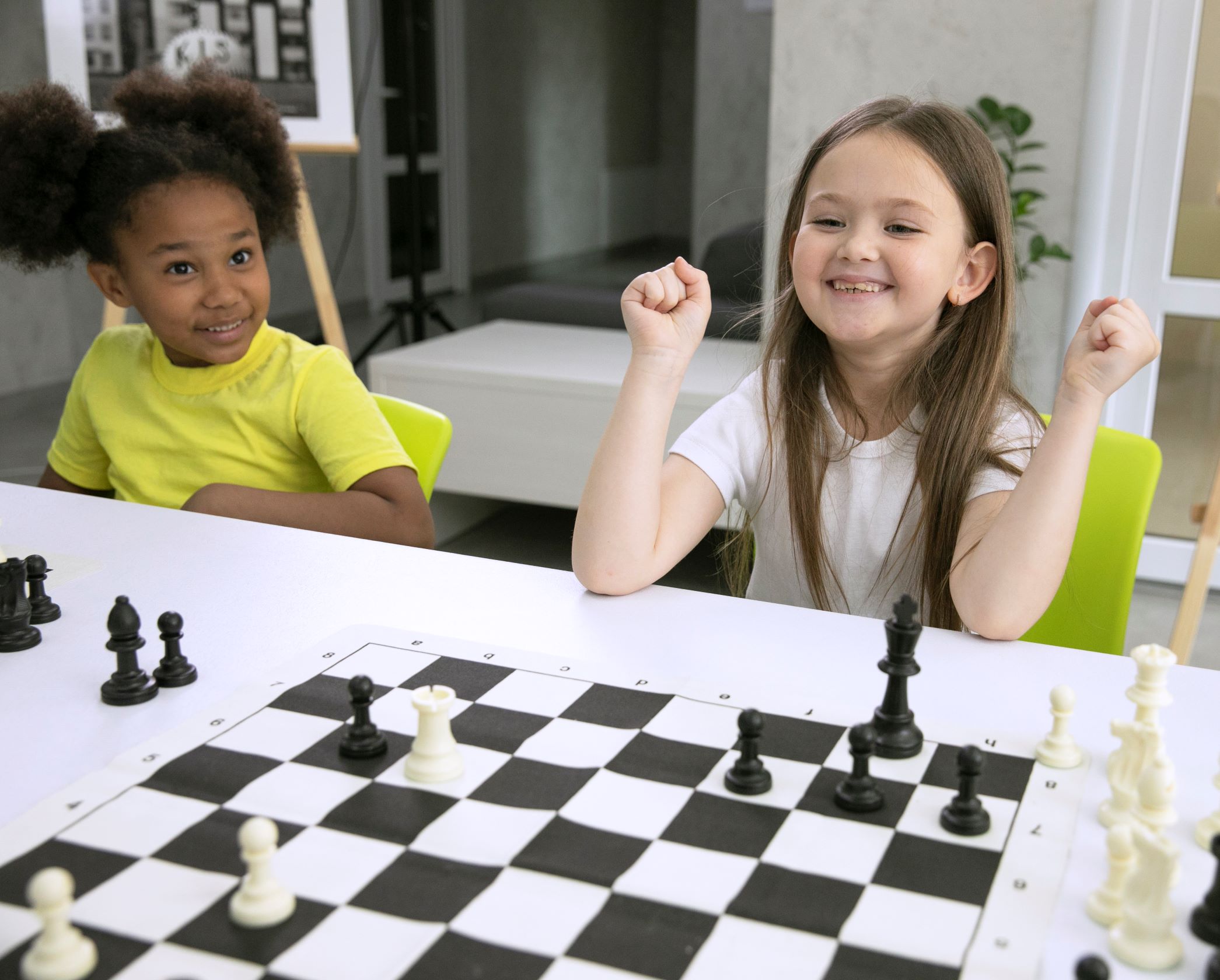Kindergarten is a huge year for both academic and social development, and a perfect time to introduce your child to the game of chess. Chess is not only mentally stimulating, but it also nurtures essential skills that can help shape a child’s character and cognitive abilities. Let’s take a look at 6 reasons why kindergarten is the perfect time to start learning this timeless game.
Developing Critical Thinking and Problem-Solving Skills
Chess revolves around strategy and critical thinking skills in order for players to learn to analyze positions, plan their moves, and outmaneuver their opponents. Developing these skills helps kids beyond the chessboard by equipping them to have a more thought out and calculated mindset.
Chess is also a game of complex problem solving, where players encounter a variety of challenges and have to find optimal solutions. The problem-solving skills that kids develop when playing chess help them to think critically and make informed decisions in other academic and real-life scenarios.
Fostering Creativity
Playing chess activates the right side of the brain, which is responsible for creativity. As chess skills grow, so does one’s ability to be creative. There are an incredible number of possibilities during a game of chess, and there aren’t always clear-cut answers or solutions to what move will work best. Players must be creative when coming up with ideas in their minds as to what moves they want to try, and how their moves might change depending on the continually changing set up of their board.
Teaching Values and Respect
Chess puts a huge emphasis on good sportsmanship, integrity, and fair play. Children who play chess regularly not only learn the importance of following the rules, but also develop a strong sense of moral values which can influence their behavior both on and off the board.
Enhancing Neuroplasticity
Chess enhances the brain’s capacity to adapt and learn. Since a child’s brain in kindergarten is in a crucial development phase, chess is a perfect way to stimulate neural connections, and help the acquisition of new knowledge and skills – all through the fun of a game!
Instilling The Value of Hard Work and Perseverance
It takes dedication and perseverance to become a good chess player, and children who spend a lot of time playing will quickly learn that their success is a direct result of the hard work they put in. Creating a mindset which values working hard can set the stage for a strong work ethic throughout a child’s life and into adulthood.
Developing Patience
In chess, players must remain calm and collected, even when a situation is intense. By regularly playing chess, children learn to regulate their emotions, think clearly, and make better decisions under pressure.
On top of this, some games of chess can go on for a while, and children must learn to maintain their attention and concentration for extended periods of time – a skill that is much needed for everyday tasks.
At the end of the day, no matter what your personal chess level is, you can play a key role in supporting your kindergartener as they learn how to play the game. Playing together can be fun and rewarding and you may give your child some great skills that they can use in other aspects of their life as well.

